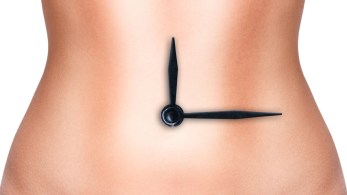The Gut-Brain-Sleep Connection
BySarah Axtell, ND •August 12, 2017

In addition to fiber and water, there are certain hormones that put the digestive process into motion, thus keeping you regular. These hormones run on a regular rhythm or bio-time. This is often referred to as the “gut clock.”
Melatonin is a key hormone in regulating your gut clock. When the sun goes down, melatonin is secreted from the pineal gland in the brain and suppresses bowel activity. When the sun comes up and melatonin production decreases, the colon wakes up- ideally resulting in a bowel movement within 90 minutes of waking. If you have to get up from bed and go to the bathroom in the middle of the night (when melatonin is flowing), this can be a red flag that something may be wrong with your digestive or endocrine system.
Clinical studies have demonstrated that the administration of melatonin improves symptoms in patients with IBS and GERD. Deficiencies in melatonin have also been linked to increased permeability of the gut or “leaky gut.” After all, the gut contains 400 times more melatonin than the pineal gland! If you experience constipation or have irregular/unpredictable BM’s, be sure to prioritize sleep hygiene:
- Sleep in complete darkness.
- Go to bed at the same time every night.
- Avoid screen time at least an hour before bed.
- Avoid food 3 hours prior to bedtime.
It is also worth considering supplementing with melatonin 60 mins prior bedtime to reset your gut clock, especially if you work night shift, travel frequently or have insomnia.
Predictability of your BM’s is a good sign of health- a sign that your endocrine system is working with your GI system.
Resources:
Distribution, function and physiological role of melatonin in the lower gut
Gut clock: implication of circadian rhythms in the gastrointestinal tract
Melatonin and serotonin effects on gastrointestinal motility
Editor’s Note: The information in this article is intended for your educational use only. Always seek the advice of your physician or other qualified health practitioners with any questions you may have regarding a medical condition and before undertaking any diet, supplement, fitness, or other health program.